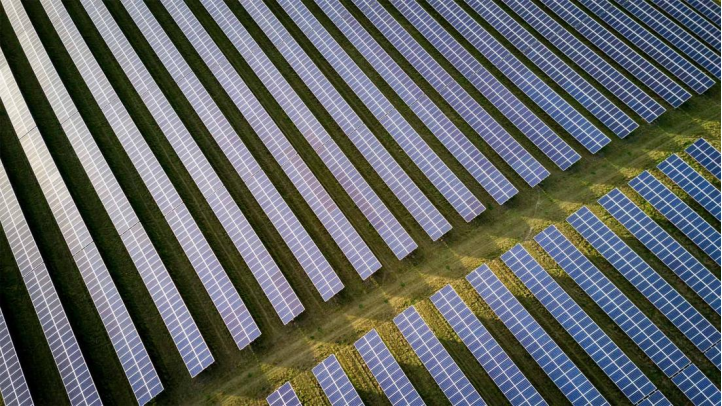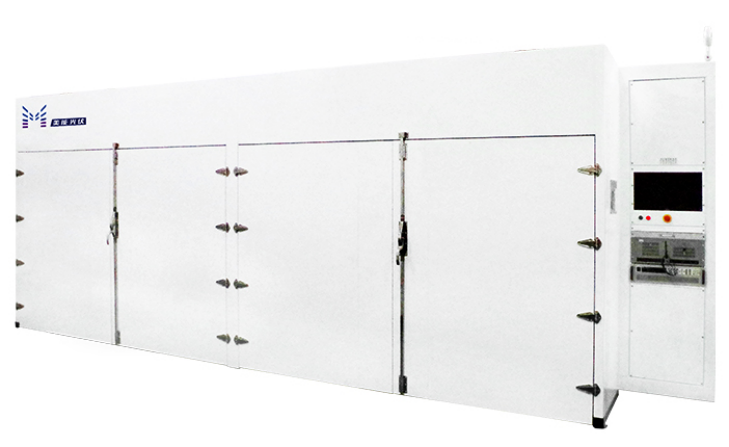
量子效率测试仪
PL/EL一体机
Sinton硅片少子寿命测试仪
Sinton硅块少子寿命测试仪
绒面反射率测试仪
3D共聚焦显微镜
在线四探针方阻测试仪
全自动扫描四探针方阻测试仪
在线薄膜厚度测试仪
晶化率测试仪
Horiba显微共焦拉曼光谱仪
傅里叶红外光谱仪
霍尔效应测试仪
分光光度计
全光谱椭偏仪
Horiba椭圆偏振光谱仪
TLM接触电阻率测试仪
超景深显微镜
网版智能影像测量仪
全自动影像测量仪
卧式拉力机
电池片稳态光衰老化试验箱
电池片紫外老化试验箱
电池片拉脱力综合测试仪
外观检验台
湿漏电测试系统
组件实验室EL测试仪
紫外老化试验箱
稳态光衰老化试验箱
电流连续性监测系统
PID测试系统
旁路二极管测试系统
LeTID测试系统
反向电流过载系统
脉冲电压测试系统
绝缘耐压测试仪
接地连续性测试仪
绝缘耐压接地测试仪
湿热环境试验箱
湿冻环境试验箱
热循环试验箱
动态机械载荷测试机
静态机械载荷测试机
冰雹冲击试验机
引出端强度试验机
霰弹冲击试验机
抗划伤(切割)测试机
剥离试验机
万能材料试验机(单臂)
万能材料试验机(双臂)
光伏玻璃透过率测试仪
醋酸测试试验箱
交联度测试系统
二极管接线盒综合测试仪
落球冲击试验机
半自动四探针
全自动探针式台阶仪
多通道太阳能MPPT系统
Horiba稳瞬态荧光光谱仪
大面积钙钛矿方阻椭偏二合一测试仪
大面积钙钛矿影像显微二合一监测站
钙钛矿P1激光划线测试仪
钙钛矿在线PL测试仪
钙钛矿在线方阻测试仪
钙钛矿在线膜厚测试仪
钙钛矿工艺检测工作站
手持式IV测试仪
便携式EL测试仪
手持热成像测试仪
户外组件多通道测试系统
光伏逆变器电能质量测试仪
无人机EL检测仪
IV测试仪
IVEL分选机
美能光伏科普 | 深入测量光伏组件的组件功率
日期:2023-09-28浏览量:310
随着光伏产业的发展,光伏组件器件的性能以及其可靠性受到了广泛关注和深度重视。光伏组件的组件功率测试是评估光伏组件性能是否符合产业化标准的重要手段,它能够准确测量光伏组件的输出功率,为光伏发电系统的实际应用与维护提供重要依据。「美能光伏」生产的美能太阳光模拟器,能够通过测量光伏组件的功率,判断其是否达到产业化标准,从而助力组件厂商生产合格的光伏组件。本期「美能光伏」将给您介绍光伏组件的组件功率测试!

![]()
光伏组件功率测试原理
光伏组件的功率测试原理主要是基于光伏效应和电流电压特性,光伏效应是指当光照射到光伏组件表面时,光子的能量被转化为电子的能量,从而产生电流。光伏组件的输出功率与光照强度、光谱分布、温度等因素有关。

在光伏组件功率的测试中,可使用「美能光伏」生产的美能太阳光模拟器模拟太阳光照射,通过测量光伏组件的电流和电压来计算输出功率。太阳光模拟器产生的光照具有类似太阳光的光谱分布、能够提供稳定的光照强度。
![]()
光伏组件功率测试方法
光伏组件的功率可在室内实验室环境下进行测试,室内测试可以通过控制光照强度和温度等条件,使用测试结果更加准确可靠。在室内测试中,可以使用美能太阳光模拟器进行太阳光模拟,并将模拟的太阳光照射在光伏组件表面,从而快速准确的评估光伏组件的性能,确保它的质量是否达到产业化标准。
![]()
光伏组件功率测试
在测量过程中,需要把控对温度的控制,光伏组件的温度对功率测试结果有很大的影响,会使测量数据有所偏差。在光伏组件功率测试中,光照强度的准确测量也是非常重要的。因此,需要定期使用太阳光模拟器进行校准,确保光照强度的准确性。
在进行光伏组件功率测试时,需要根据环境进行测试,不同环境下测试的针对性也会有所不同;在室外进行测试可以反映组件在实际工作环境下的性能,而室内测试可以提供更加准确可靠的测试结果。
![]()
美能太阳光模拟器

商务联系:张经理 400-008-6690
美能太阳光模拟器采用能模拟全阳光光谱的金卤灯来再现不同环境下存在的破坏性光波,可以为光伏产品开发和品质保障提供在不同环境下的试验和模拟,并能满足IEC61215标准测试中的曝晒、最大功率点确定、热斑测试条款规定的稳定性测试,且光斑面积可达2800*2500mm,光谱满足BBA标准。
● 可实现局部控温、温控范围为60℃±10℃
● 辐照面积达到5200mm*4200mm
● 辐照度范围可达700~1300w /m^-1
● 可手动调整各只光源辐照强度或整体辐照强度
● 光谱高匹配度、辐照强均匀性与稳定性
为了判断光伏组件的性能是否符合产业化标准,就必须要对其输出功率进行深入测量,「美能光伏」拥有的美能太阳光模拟器,可通过太阳光模拟系统来检测太阳能组件的输出功率,从而帮助组件厂商对组件质量进行合理判断,助力其生产高效的太阳能组件!









































































